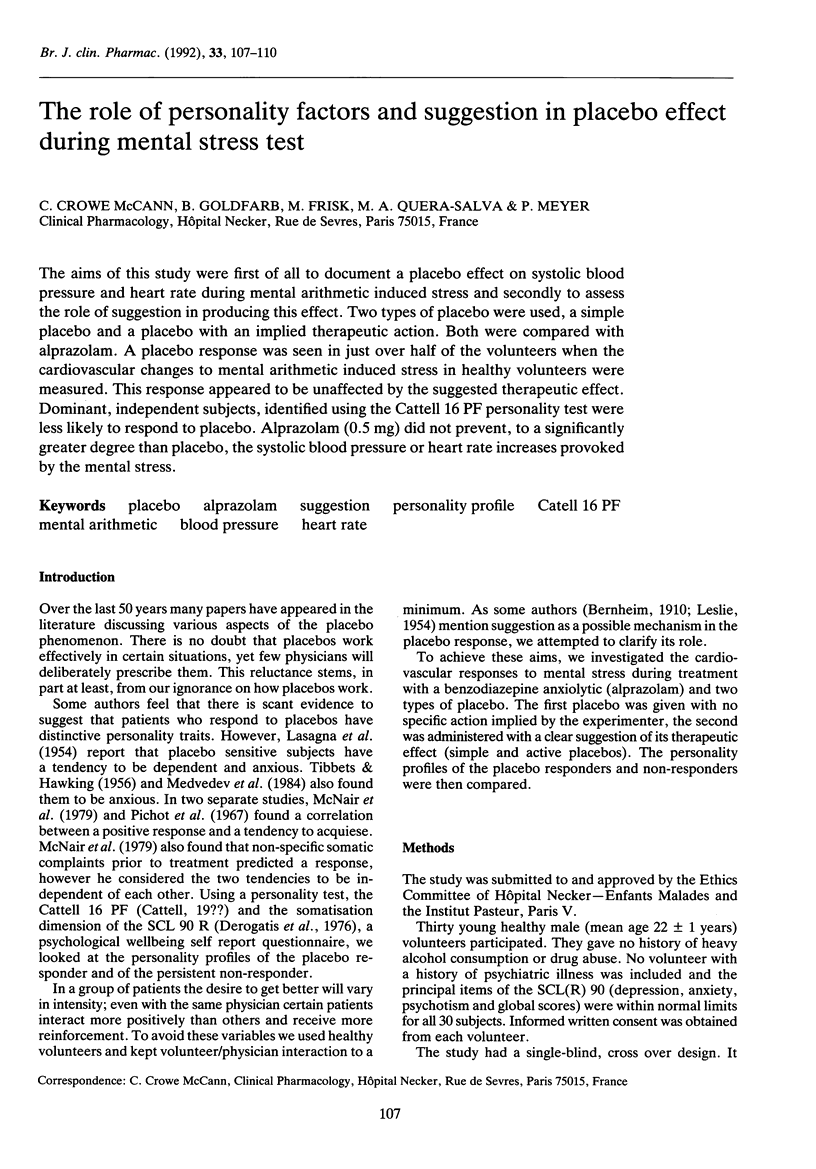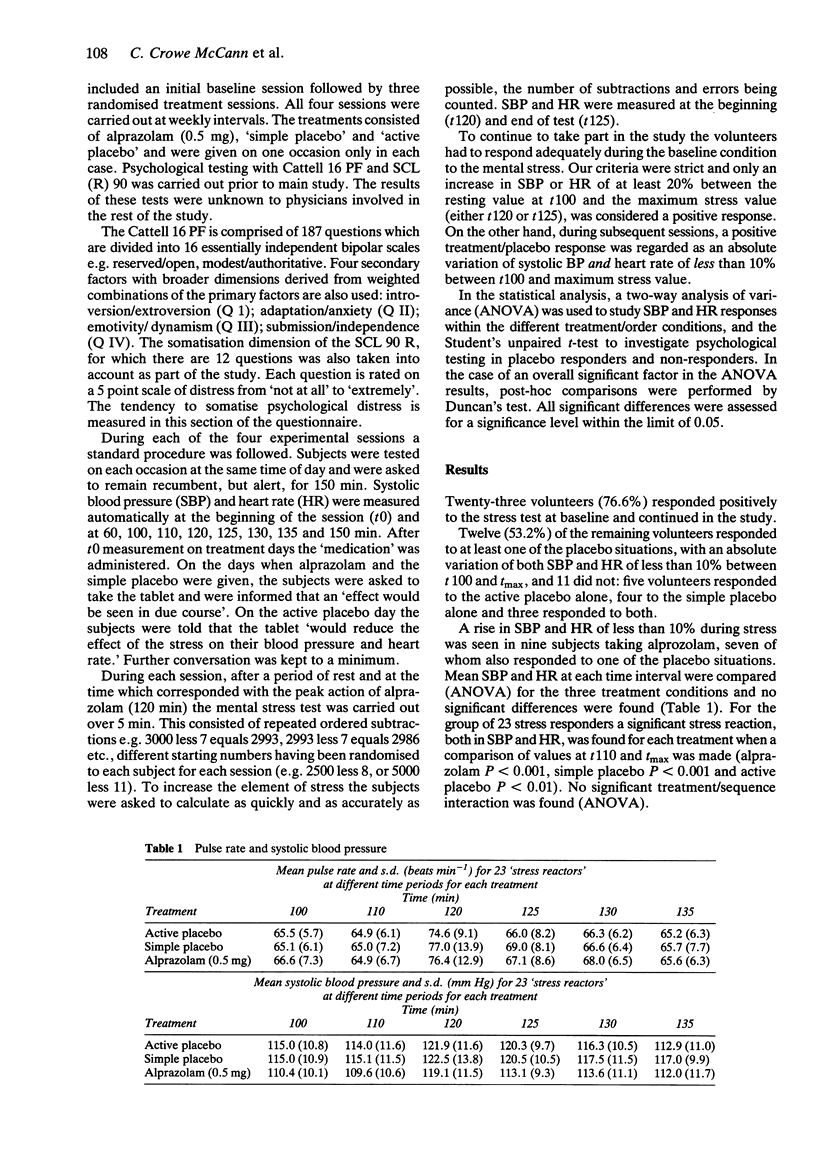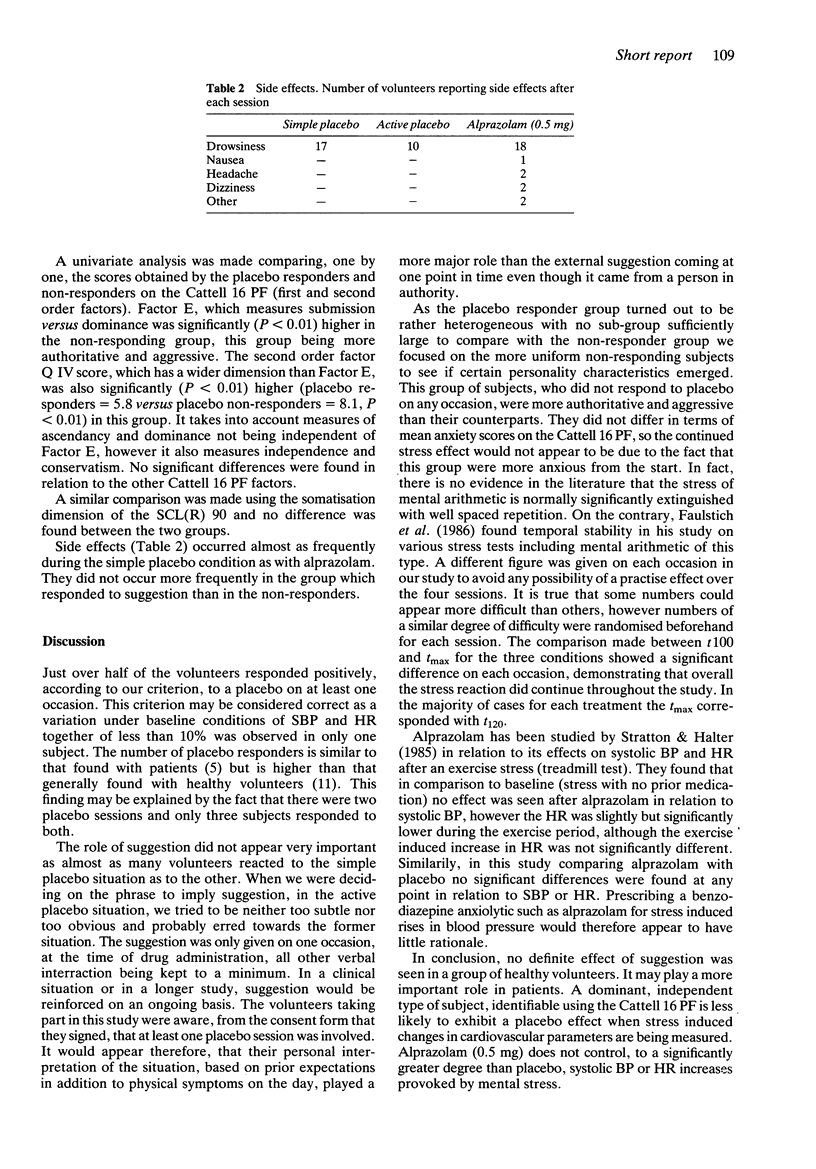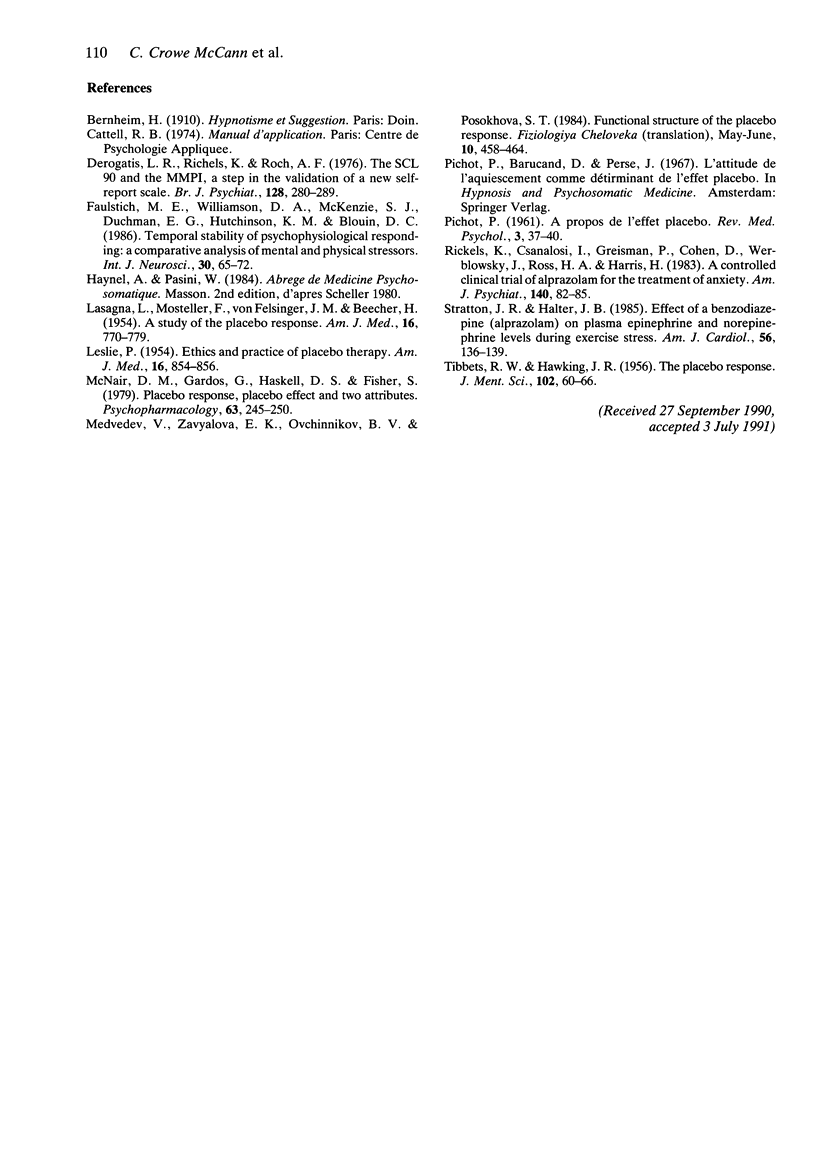Abstract
The aims of this study were first of all to document a placebo effect on systolic blood pressure and heart rate during mental arithmetic induced stress and secondly to assess the role of suggestion in producing this effect. Two types of placebo were used, a simple placebo and a placebo with an implied therapeutic action. Both were compared with alprazolam. A placebo response was seen in just over half of the volunteers when the cardiovascular changes to mental arithmetic induced stress in healthy volunteers were measured. This response appeared to be unaffected by the suggested therapeutic effect. Dominant, independent subjects, identified using the Cattell 16 PF personality test were less likely to respond to placebo. Alprazolam (0.5 mg) did not prevent, to a significantly greater degree than placebo, the systolic blood pressure or heart rate increases provoked by the mental stress.
Full text
PDF



Selected References
These references are in PubMed. This may not be the complete list of references from this article.
- Derogatis L. R., Rickels K., Rock A. F. The SCL-90 and the MMPI: a step in the validation of a new self-report scale. Br J Psychiatry. 1976 Mar;128:280–289. doi: 10.1192/bjp.128.3.280. [DOI] [PubMed] [Google Scholar]
- Faulstich M. E., Williamson D. A., McKenzie S. J., Duchmann E. G., Hutchinson K. M., Blouin D. C. Temporal stability of psychophysiological responding: a comparative analysis of mental and physical stressors. Int J Neurosci. 1986 Aug;30(1-2):65–72. doi: 10.3109/00207458608985656. [DOI] [PubMed] [Google Scholar]
- LASAGNA L., MOSTELLER F., VON FELSINGER J. M., BEECHER H. K. A study of the placebo response. Am J Med. 1954 Jun;16(6):770–779. doi: 10.1016/0002-9343(54)90441-6. [DOI] [PubMed] [Google Scholar]
- LESLIE A. Ethics and practice of placebo therapy. Am J Med. 1954 Jun;16(6):854–862. doi: 10.1016/0002-9343(54)90450-7. [DOI] [PubMed] [Google Scholar]
- McNair D. M., Gardos G., Haskell D. S., Fisher S. Placebo response, placebo effect, and two attributes. Psychopharmacology (Berl) 1979 Jun 21;63(3):245–250. doi: 10.1007/BF00433557. [DOI] [PubMed] [Google Scholar]
- Medvedev V. I., Zav'ialova E. K., Ovchinnikov B. V., Posokhova S. T. Funktsional'naia struktura platsebo-reaktsii. Fiziol Cheloveka. 1984 May-Jun;10(3):458–464. [PubMed] [Google Scholar]
- Rickels K., Csanalosi I., Greisman P., Cohen D., Werblowsky J., Ross H. A., Harris H. A controlled clinical trial of alprazolam for the treatment of anxiety. Am J Psychiatry. 1983 Jan;140(1):82–85. doi: 10.1176/ajp.140.1.82. [DOI] [PubMed] [Google Scholar]
- Stratton J. R., Halter J. B. Effect of a benzodiazepine (alprazolam) on plasma epinephrine and norepinephrine levels during exercise stress. Am J Cardiol. 1985 Jul 1;56(1):136–139. doi: 10.1016/0002-9149(85)90582-x. [DOI] [PubMed] [Google Scholar]
- TIBBETTS R. W., HAWKINGS J. R. The placebo response. J Ment Sci. 1956 Jan;102(426):60–66. doi: 10.1192/bjp.102.426.60. [DOI] [PubMed] [Google Scholar]


